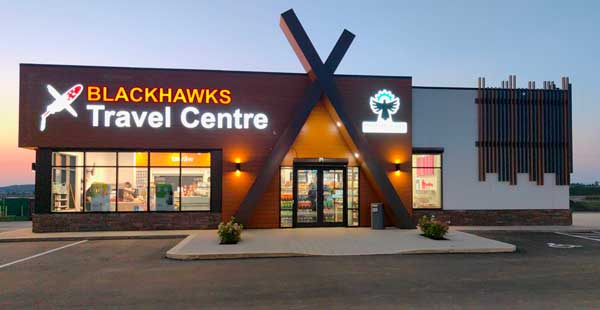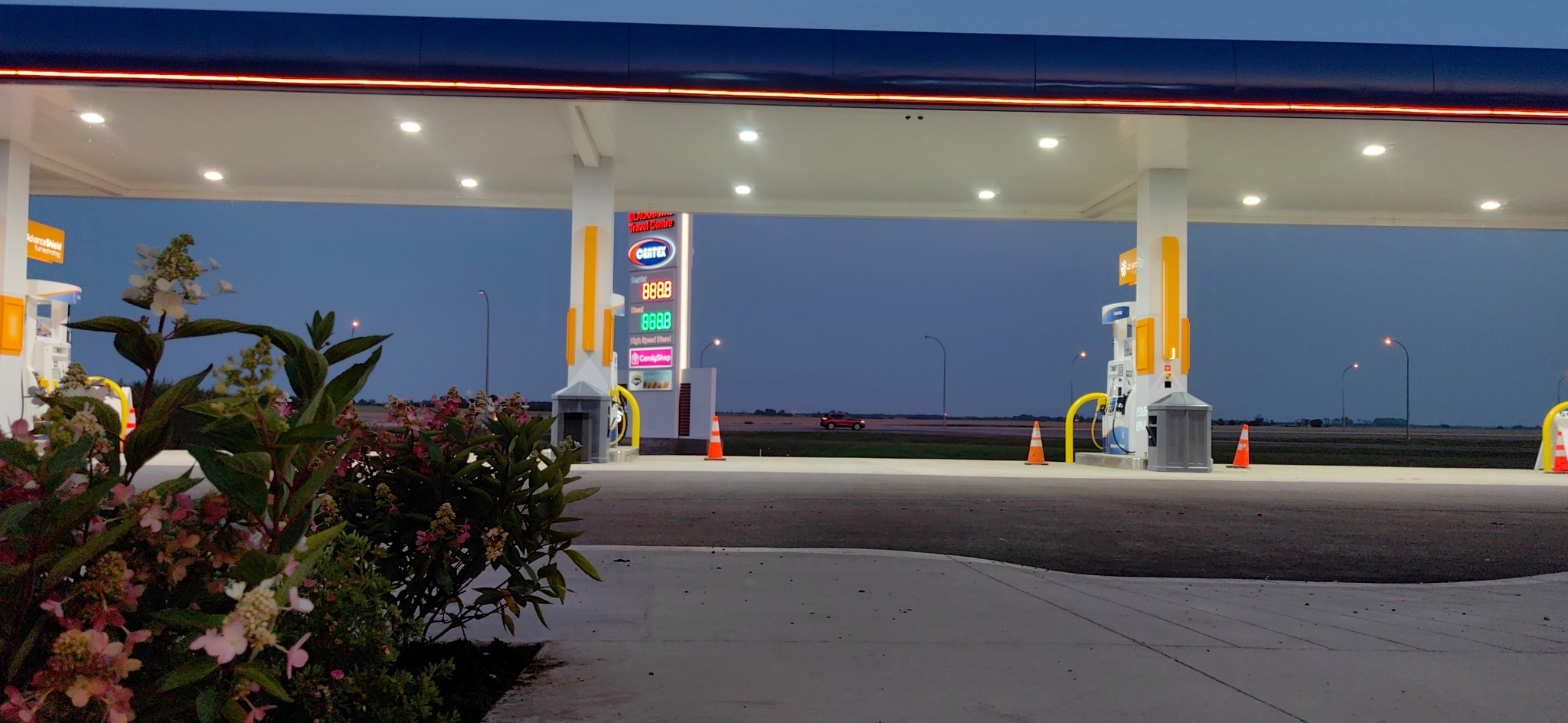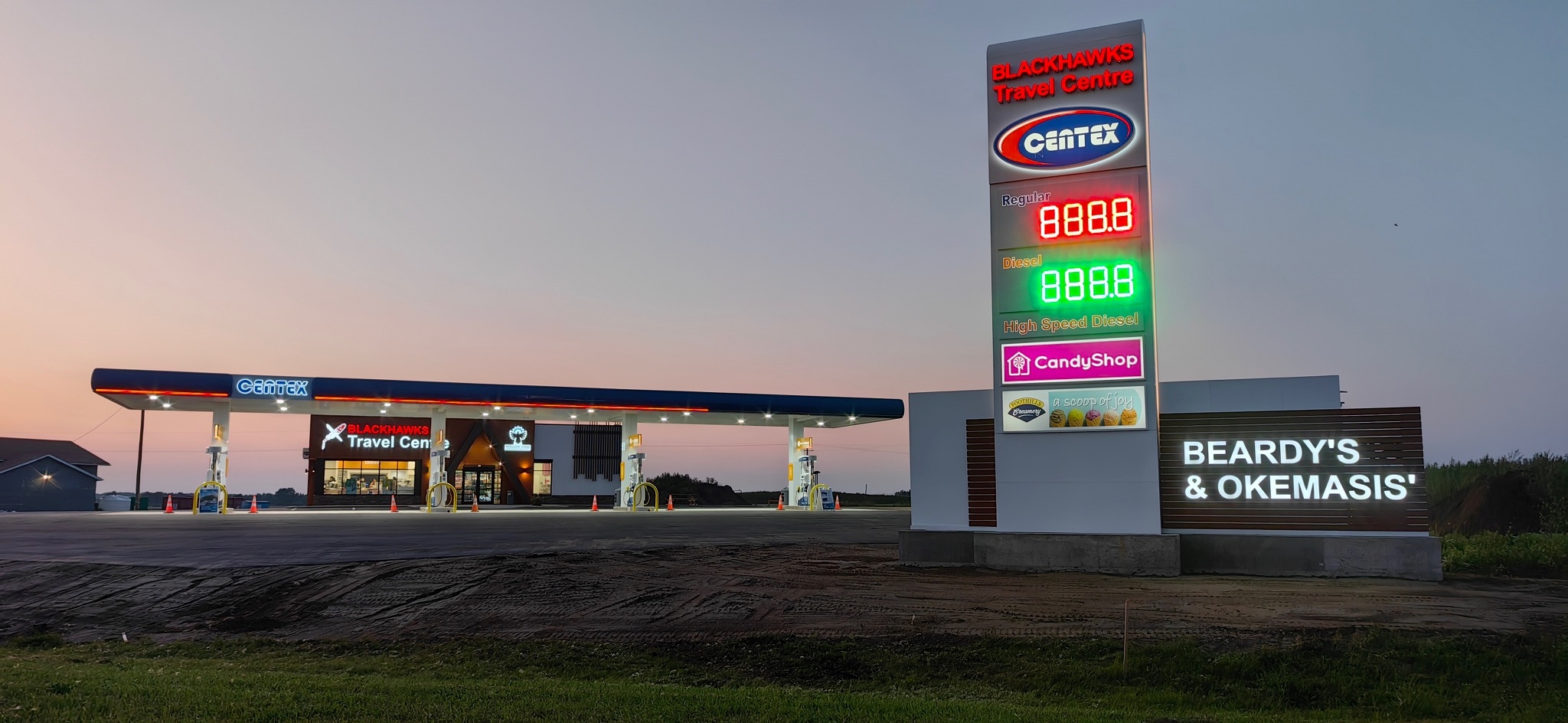Summer concluded with some much-needed updates
- Local Journalism Initiative - NC Raine | October 05, 2023
Long waits at the two community gas pumps are now a thing of the past for the Beardy’s and Okemasis Cree Nation since opening the Blackhawk Travel Centre – a gas bar and convenience store located on highway 11, near the entrance to the reserve.
“Everyone loves it so far,” said Garnet Eyahpaise, economic development coordinator and former Chief at Beardy’s and Okemasis Cree Nation. “The old gas station only had two pumps, and sometimes we had lineups and people would get impatient and leave for the next town. Now we have eight lanes of service. The wait time is not there anymore.”
The gas station opened on August 17, and offers three fuel types including high speed diesel for truckers and heavy equipment operators. The First Nations owned business replaces the former Blackhawks convenience store and gas station, which Eyahpaise said was over 50 years old and needed major upgrades.
The new gas station has drawn more attention than expected.
“We didn’t anticipate the amount of people coming in,” said Eyahpaise. “It’s been crazy. We feel behind in a lot of stock, it just flew off the shelves.”
The gas station is the first major project of the Beardy’s and Okemasis business corporation.
The project was funded through a loan from the First Nations Bank of Canada, as well as partnerships with Metrician Builders and Canadian fuel company Centex.
The business employs 20 individuals from the First Nation, many of whom are students. It's tax-free and offers fuel rebates due to being on treaty land, said Eyapaise.
Blackhawk Travel Centre even has a bakery that produces different types of bannock, which regularly sells out daily.
But the real benefit, said Eyahpaise, is in the economic development and services it provides to the community.
“The volume of sales will add up over time, and we can offer services to our people, essential things like medical taxies,” he said. “We take patients every day to Saskatoon. And so, these kinds of essential services all require fuel.”
Another upgrade is high-speed internet, which is available throughout the entire community at a cost of $2.2 million ($2 million from Innovation, Science, and Economic Development Canada and $200,000 from the First Nation).
The project involved installation at each residence and the installation of two internet towers, which enables Wi-Fi throughout the community.
“It opens doors for our people,” said Eyapaise. “We can now provide proper communication for our band members.”
He said COVID created a particular challenge for the youth because distance learning was not possible with the available Internet services at the time.
“In the cities, they had the luxury of learning online with their teacher,” Eyapaise. “In our case, it couldn’t be done. I think our children suffered immensely in terms of what they would get within that school year.”
“The internet should be available to everyone. But we’re a First Nation so we’re always the last ones. Things that people in the cities take for granted we can now do in our own First Nation.”
The internet service is currently offered for free to community members but will soon come at a price of $75 per month once service is fully connected throughout the community.



